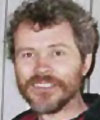Tiempo Climate Cyberlibrary
On Course to Copenhagen?
- Tiempo archive
- Complete issues
- Selected articles
- Cartoons
- Climate treaty
- Latest news
- Secretariat
- National reports
- IPCC
About the Cyberlibrary
The Tiempo Climate Cyberlibrary was developed by Mick Kelly and Sarah Granich on behalf of the Stockholm Environment Institute and the International Institute for Environment and Development, with sponsorship from the Swedish International Development Cooperation Agency.
While every effort is made to ensure that information on this site, and on other sites that are referenced here, is accurate, no liability for loss or damage resulting from use of this information can be accepted.
 |
Gunnar Boye Olesen discusses issues facing participants in the climate negotiations in Poznań, Poland, December 2008. |
| The author is co-coordinator of the International Network for Sustainable Energy. | |
In spite of the increasing evidence of harmful climate change, negotiations are progressing only slowly toward an international agreement on post-2012 climate policies.
If a meaningful international climate agreement is to be in place by 2012, it is crucial that progress be made at the next round of the negotiations in Poznań, Poland, to be held during the first two weeks of December 2008. The agreement at the 2007 meeting in Bali of a reduction of carbon emissions from 1990 levels of up to 40 per cent by the year 2020 in industrialized countries is only adequate to prevent harmful climate change if the target is a firm 40 per cent; anything less will keep emissions too high.
The task facing negotiators in Poznań must be to translate the conclusions from Bali into agreements among all countries willing to take climate change seriously. The agreements must lead to real, substantial reductions in emissions, not just more trading of hot air. Further, they must be based on reductions of emissions of energy use and industries, not mixing them with land-use change or other sinks.
The strong greenhouse gases must have their own reduction agreement, not allowing reduction projects of these gases to get windfall profits from participating in the same mechanisms as other projects. Agreements to reduce emissions from energy and industry must be followed by an agreement addressing land-use change and deforestation. The net emissions from deforestation and changing land use not only have to be stopped, they also have to be reversed, such that land use globally very quickly becomes a sink and not a source of greenhouse gas emissions.
There are several positive proposals in the recent official negotiations in Bonn and Accra. For example, South Africa has proposed a vision for the reduction and subsequent reversal of global emissions within a decade and, later, reductions in South Africa's contribution. Also positive is Norway’s proposal to address global shipping by allocating emissions to the owners of the ships. The European Union countries have shown significant initiative in their stated willingness to reduce emissions by 30 per cent by 2020 as part of an international agreement. These are some of the proposals that could build up success at the negotiations in Poznań and in 2009 in Copenhagen.
Unfortunately, there are many attempts to water down the potential outcome of the negotiations in Poland from all parts of the world, including Poland itself. There are proposals to introduce hot air of various kinds, to let uncertain sinks replace emissions, directly or via various trading systems, to let nuclear power replace more sustainable projects in the Clean Development Mechanism, and many others.
In the middle of December we will know whether Poznań was a positive step towards the negotiations in Copenhagen or simply two weeks wasted on toothless international negotiations.
Acknowledgements
This comment was first published in Issue 62 (October 2008) of Sustainable Energy News, the newsletter of the International Network for Sustainable Energy, and is reproduced here with permission.
Further information
Gunnar Boye Olesen, International Network for Sustainable Energy (InforSE), Gl. Kirkevej 82, DK-8530 Hjortshøj, Denmark. Fax: +45-86-227096. Email: ove@inforse.org. Web: www.inforse.org.
Bright Ideas

General Electric plans to cut solar installation costs by half

Project 90 by 2030 supports South African school children and managers reduce their carbon footprint through its Club programme

Bath & North East Somerset Council in the United Kingdom has installed smart LED carriageway lighting that automatically adjusts to light and traffic levels

The United States National Oceanic and Atmospheric Administration and the American Public Gardens Association are mounting an educational exhibit at Longwood Gardens showing the link between temperature and planting zones

The energy-efficient Crowne Plaza Copenhagen Towers hotel is powered by renewable and sustainable sources, including integrated solar photovoltaics and guest-powered bicycles
El Hierro, one of the Canary Islands, plans to generate 80 per cent of its energy from renewable sources

The green roof on the Remarkables Primary School in New Zealand reduces stormwater runoff, provides insulation and doubles as an outdoor classroom

The Weather Info for All project aims to roll out up to five thousand automatic weather observation stations throughout Africa

SolSource turns its own waste heat into electricity or stores it in thermal fabrics, harnessing the sun's energy for cooking and electricity for low-income families

The Wave House uses vegetation for its architectural and environmental qualities, and especially in terms of thermal insulation

The Mbale compost-processing plant in Uganda produces cheaper fertilizer and reduces greenhouse gas emissions

At Casa Grande, Frito-Lay has reduced energy consumption by nearly a fifth since 2006 by, amongst other things, installing a heat recovery system to preheat cooking oil
Updated: May 15th 2015